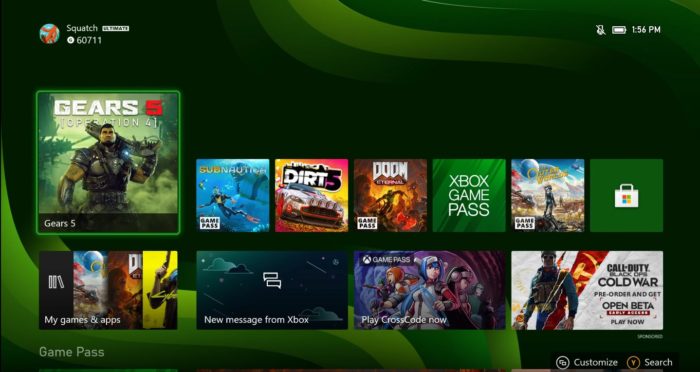The gaming industry has changed dramatically in the past decade, with more players moving to digital downloads and streaming services than ever before. But as the gaming world continues to evolve, the question remains: are physical games dying?
With the rise of digital distribution platforms and subscription models, many wonder if there’s still a place for physical games in a world dominated by instant downloads and cloud-based libraries.
Let’s take a closer look at what’s really going on with physical games and explore whether this format is truly on its last legs – or if there’s still some steam left in the cartridge and disc. To read our full guide on the 9 game generations we’ve had so far, click here instead.
Are physical games dying? Pros and cons

To answer whether physical games are dying or not, we need to talk about the rise of digital distribution platforms.
Digital gaming has surged in popularity, reshaping the way players buy and access video games. Services like Steam, PlayStation Store, Xbox Game Pass, and the Nintendo eShop have made it incredibly easy for gamers to purchase, download, and play their favorite titles with just a few clicks.
This shift towards digital platforms is understandable for several reasons, but the biggest one is convenience. Without the need to wait for shipping or visit a store – players can buy a game online and start playing immediately.
Digital games can also be easily updated with bug fixes or new content, giving players a better experience over time without needing to buy new versions. Another big advantage is that many digital services offer cloud saving, meaning players can access their games and progress from different devices.
With all of these advantages, it’s easy to see why digital gaming is becoming the go-to option for many. But does that mean physical games are on the way out?
Well, not so much. Despite the rise of digital platforms, physical games still have a loyal fan base. In fact, there are a few key reasons why physical copies remain appealing to gamers.
Many gamers still love the feeling of holding a game case, reading a manual, or admiring a limited-edition box. There’s something special about owning a physical copy, especially for collectors.

Besides, physical games give players a sense of true ownership. Unlike digital games, which exist only as licenses that could potentially be revoked or altered by a service, physical copies are a permanent piece of a collection.
We see that today with all the special editions, steelbooks, and collector’s versions of games – which create a demand for physical copies. These limited-run releases often sell out quickly and can become valuable collector’s items.
So while digital gaming has its conveniences, the emotional connection many players feel towards physical games is hard to replicate in a digital-only world.
Challenges for physical games
So, are physical games dying? Despite all of these factors, it’s undeniable that physical games face significant challenges in today’s market.
First, the cost of manufacturing and distributing physical copies is far higher than digital downloads. From printing discs or cartridges to shipping them worldwide, it’s an expensive process—one that cuts into the profit margins of game developers.
Retail is also in decline. As more stores shift their focus to online sales, finding physical copies on store shelves is becoming less common.

Many smaller game retailers have shuttered, while larger chains may no longer prioritize stocking physical games in favor of more lucrative products, like accessories and digital gift cards.
Lastly, there’s the growing environmental concern. Producing physical games uses plastics, metals, and other materials that have a lasting impact on the planet.
As sustainability becomes more important to consumers, the environmental footprint of physical games could push some players and developers toward more eco-friendly digital options.
You may also like: Video game economy design – 6 key principles to succeed
The hybrid future: physical and digital coexistence
But while digital games are on the rise, physical games aren’t disappearing completely.
We’re seeing more hybrid models emerge—physical games that offer unique digital add-ons or collectors’ items. Special editions of games, for example, might come with digital content, physical art books, or figurines, giving gamers the best of both worlds.
There’s also a growing retro gaming market. Older physical games, especially from the 80s and 90s, are seeing a resurgence in popularity.
As older games become rarer, their physical copies can fetch high prices in the resale market, and developers are taking notes by producing physical versions of modern games in limited quantities.
Even indie developers, who often focus on digital distribution, are tapping into the physical market by partnering with companies like Limited Run Games to create special physical versions for niche audiences.
What this means for game developers

In the end, should developers abandon physical games in favor of digital-only releases? Not necessarily!
For many developers, especially those creating smaller or indie titles, digital-first makes financial sense. It cuts costs, speeds up release times, and taps into the growing digital audience.
However, for blockbuster titles or games with passionate fan bases, there’s still value in producing physical copies – whether it’s for collectibility, nostalgia, or simply because some players prefer it.
The rise of cloud gaming and subscription services like Xbox Game Pass may change how developers think about distribution. Offering a game through a subscription service can widen the player base and generate consistent revenue streams, but physical games still have a place in certain markets and genres.
Read also: 5 gaming trends in 2024: a look into the future and beyond
Are physical games dying? Final verdict
So – are physical games dying? Not exactly. While it’s clear that digital gaming is dominating the market, physical games still hold value in specific niches. The nostalgia, collectibility, and sense of ownership of physical games will likely stick around, even if they become less common in mainstream retail spaces.
As the gaming landscape continues to evolve, developers need to stay ahead of the curve. Whether you’re creating the next blockbuster title or a niche indie game, our game development services can help you navigate the complexities of both physical and digital game distribution.
So get in contact with us here at Main Leaf and partner with us today to bring your vision to life, no matter the format. We can help you with any stage of the game development, including the distribution’s decision of whether you go physical or digital.

